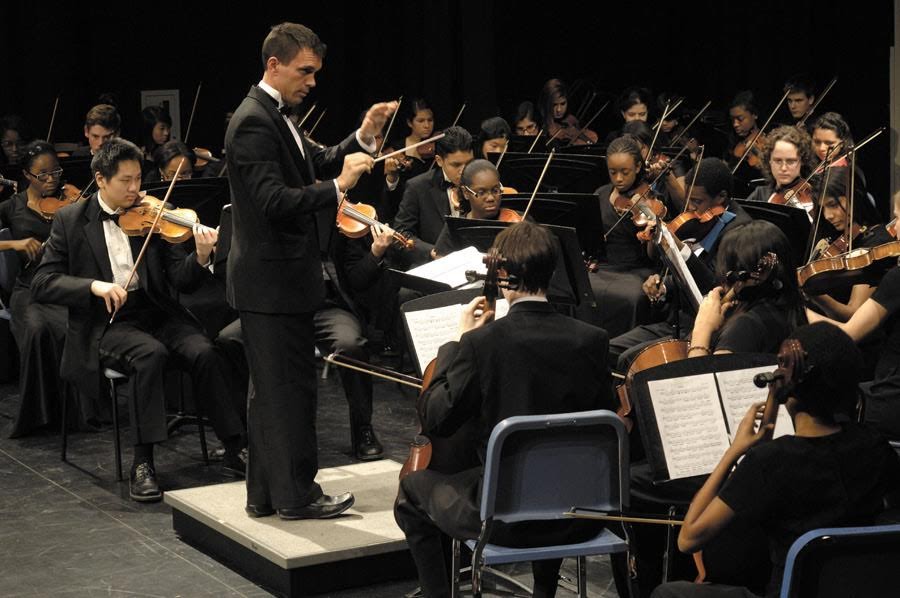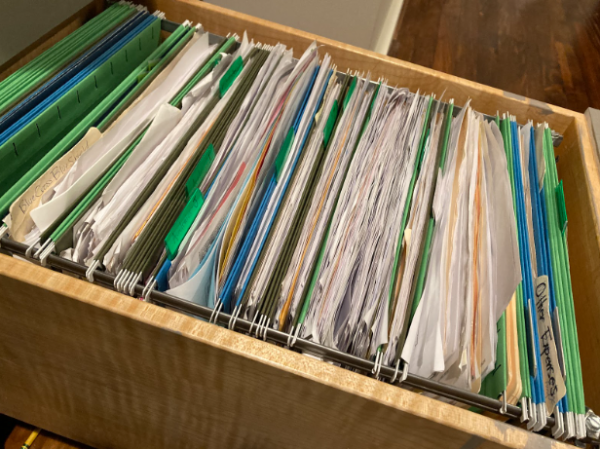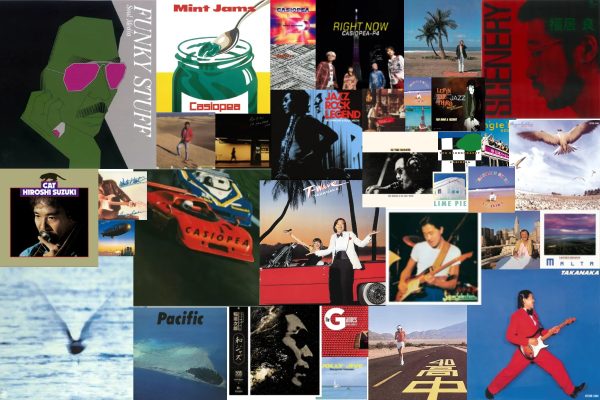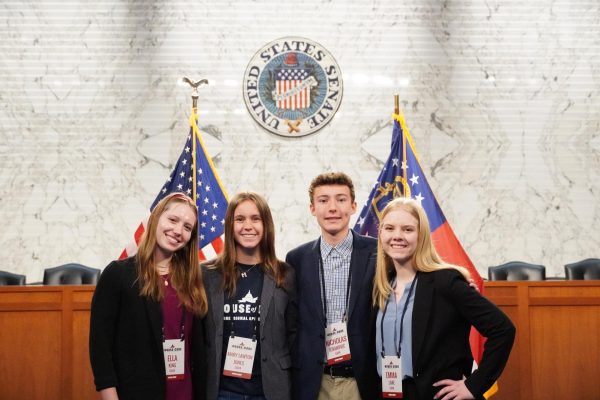“String” it on: New Orchestra Director Looking for Fresh Challenge
After the departure of Earl Kuutti this spring, CCHS had to do something it hadn’t done in decades: find a new orchestra director. With everything being unprecedented nowadays, it can be easy to feel overwhelmed, especially when doing something traditionally stressful, like starting a new job. Fortunately, it looks like Mr. Philip Barnard has the enthusiasm to overcome those odds.
“There have almost been times that I have almost felt like saying to the students, ‘Man I really miss you guys, this stinks.’ But then it hits me, I’m not gonna say that, because I haven’t even met them yet!” said Barnard. “But that’s how these students have been in the orchestra program, they’ve been patient with me, they’ve been flexible.”
Barnard’s fondness for his students has come from a lifetime of musical experience, stretching all the way back to elementary school.
“So my first instrument was clarinet in fifth grade band, and then I switched to tenor sax in eighth grade,” he said. “And then in high school, I marched tenor, but then took up the oboe, and by the time I graduated high school, I was an oboist.”
However, Barnard started playing stringed instruments far later than wind instruments. He even began his career as a high school band director.
“Somewhere around the middle of my undergraduate degree in music education, I picked up the bass and started playing bass a lot,[…] and that’s where I picked up my strings jobs,” he said. “When I graduated from college, my first job was actually a high school band director. […] And so I taught band for about eight years.”
By now, his stint as a band director is in the rearview mirror, as he enters his 18th year as an orchestra teacher. Some of those 18 years were spent just a few miles away from CCHS.
“My first job was Cleveland High School, that’s in Tennessee, and my second job was Dunwoody High School,” he said. “Of course, I was [sad to leave], I mean, I was there for a long time. And it’s home still, I still live in Dunwoody.”
Even though he misses his old home, Barnard doesn’t regret taking his new job at Chamblee.
“Everyone said, you’re going to love the kids at Chamblee, if you make the move, you are going to love it,” he said. “And so I’ll be honest, these last six weeks, despite how crappy the situation is that we’re all finding ourselves in as musicians, […] this was such a good decision.”
Barnard brings not only musical expertise to Chamblee, but also a positive attitude about how to deal with students.
“I don’t yell. […] I was one of those students in high school, who the teacher yelled at a lot, and I know how ineffective it eventually became when that teacher was yelling at me every day,” he said. “And so the teachers that had the most impact on me were the ones who sat me down and talked to me […] because I believe that high schoolers are at a certain age that they can think with reason. They can work through logic, they can think rationally.”
Barnard also has an important perspective on the student-teacher dynamic: one that students may often forget.
“It’s not me against you,” he said. “It’s not teacher trying to outsmart student. It’s the opposite. I’m completely on your side.”
Barnard was inspired to teach music when he was a student himself, enrolled in music classes. His family, which had immigrated to the United States in 1855, grew quickly in America and, eventually, a family band was formed by the many members of the family who were musically inclined.
“One hundred, one hundred twenty five years ago, typically speaking, back then the only type of entertainment there was, was music, and it had to be live music,” he said. “And so twenty or thirty people in the family who played musical instruments would always get together and play, and the rest of the family would just sit back and, you know, have their picnic in the local park or whatever, and listen to the music.”
When Barnard took music classes, however, he frequently found himself having to have his education supplemented by his father, a luxury many of his classmates didn’t have access to.
“My parents obviously enrolled me and registered me for music class, when I was in middle school, just like any other kid, and what we discovered was that my middle school and high school teachers weren’t very good,” he said. “There were lots of gaps in my education, and I was explaining this to my dad. Of course, he was catching me up at home, but I looked around the room and realized that my friends in […] music class were not getting the extra help that I was getting at home. […] And I realized for them, music was not an opportunity for a creative outlet, music was not an opportunity to let your guard down and just be in the moment, music was not all those positive experiences that so many kids possibly take for granted at Chamblee. And I vowed right then and there, ‘You know what, I’m going to become a music teacher and make sure that the students in my class don’t walk into their classes with the feelings that my friends feel and that I felt,’ which were feelings of frustration, feelings of anxiety […] My vow right then was to become a music teacher, where my classes, when the kids walked in, they said ‘I’m so glad to be here, this is my favorite class of the day, something good is going to happen today’”
This commitment to making students feel comfortable has given him an incredible sense of fulfillment.
“I love my job today, 26 years in, as much as I did that first year, […] I feel the same excitement and nervousness, and fingers crossed, this is going to be a good year,” he said. “Every year feels like my first year, it doesn’t get boring, I’m not like, I can’t wait till I retire. This doesn’t feel like work to me.”
One of Barnard’s goals as the Chamblee orchestra director is to make sure Chamblee’s orchestra program is well known around Georgia for its quality.
“The Chamblee orchestra program has always been very good, and one of the best, certainly in DeKalb County. One of the things I feel is my sworn duty as a teacher is to showcase the talents of my students. They are front and center, they are the spotlight,” he said. “Beyond [DeKalb county], the only folks that know or have known about the Chamblee orchestra program’s incredible success have been people who […] accidentally ran into the fact that Chamblee has such a fantastic orchestra program. And so, one of my goals that I have is [..] to celebrate [my students’] successes, and one of the greatest ways to do that is to look at the program as a whole and realize we are one of the top ten high school orchestras in the state of Georgia.”
Despite his lofty goals, Barnard thinks that his belief in his new students’ abilities is well placed.
“Over the years, it doesn’t take long to figure out that certain personality types gravitate toward certain instruments, certain music, certain performance practices, […] certain personalities gravitate towards certain ways to make noise,” he said. “ And what I’ve noticed, though, is despite those differences in personality, when you dig deep into the soul of the individual, creative people are, at their core, they are the people who respect the endeavor we’re all doing, I mean, the journey we’re all on to create something beautiful. And you can’t create something beautiful if it’s coming from, you know, an ugly place inside of who you are. So to create this beauty that we create, as musicians, I think the core of who we are has to have something in it that’s beautiful.”
Your donation will support the student journalists of Chamblee High School Blue & Gold. Your contribution will allow us to print editions of our work and cover our annual website hosting costs. Currently, we are working to fund a Halloween satire edition.

Thomas Rice is a senior, and this is his second year on the staff. In five years he hopes to be celebrating a Hawks NBA Finals victory after graduating college. The movie that would best encapsulate his Chamblee experience is "Tall Girl", except instead of “Girl” it’s “Boy” and instead of being about himself it’s about Blue & Gold staff writer Adam Pohl.










